If it were a real person, Call of Duty would probably be a rebellious teenager right now, just one year away from stepping into the joys, freedoms and challenges of adulthood. Instead, in that time, the military-themed first-person shooter has made everlasting memories for millions of players around the world, including an entire generation of gamers who spent their adolescent years with the franchise and continue to stick with it to this day.
It's not surprising, therefore, to see the series turn into a cultural phenomenon that continues to generate blockbuster levels of hype with each new installment surpassing the last in making truckloads of money for publisher Activision. With its latest installment just out of the door this month, it seems like a good time to scratch the surface of this franchise that's now become a sales juggernaut employing half a dozen development studios.
Sit back, grab some Doritos and Mountain Dew as we aim down the sights and take a look back at the 17-year history of Call of Duty, from the very first game released in 2003 to this year's Black Ops Cold War.
Call of Duty (2003)

The early 2000s were exciting times for military-themed shooters, particularly the WWII variety. Electronic Arts was firing on all cylinders with Battlefield and the Medal of Honor series, and in 2002 set the bar for this genre across single player and multiplayer modes with Battlefield 1942 and MoH: Allied Assault.
The latter, as it turned out, was also the genesis of Call of Duty. Developed by Infinity Ward, a newly-formed studio led by Vince Zampella, Grant Collier, and Jason West, all of whom had previously worked on MoH:AA, work began on what arguably was Allied Assault's spiritual successor.
The gameplay is a bit barebones by today's standards but Call of Duty's intense, gripping combat and oftentimes witty dialogue greatly complemented the WWII setting. These attributes would eventually become intrinsic to the franchise. Call of Duty's campaign wasted no time in taking the player shooting, crouching, and sniping through various events across the American, British and Soviet theatre, with their trusty rifle, SMG or a panzerfaust for when things got hairy.
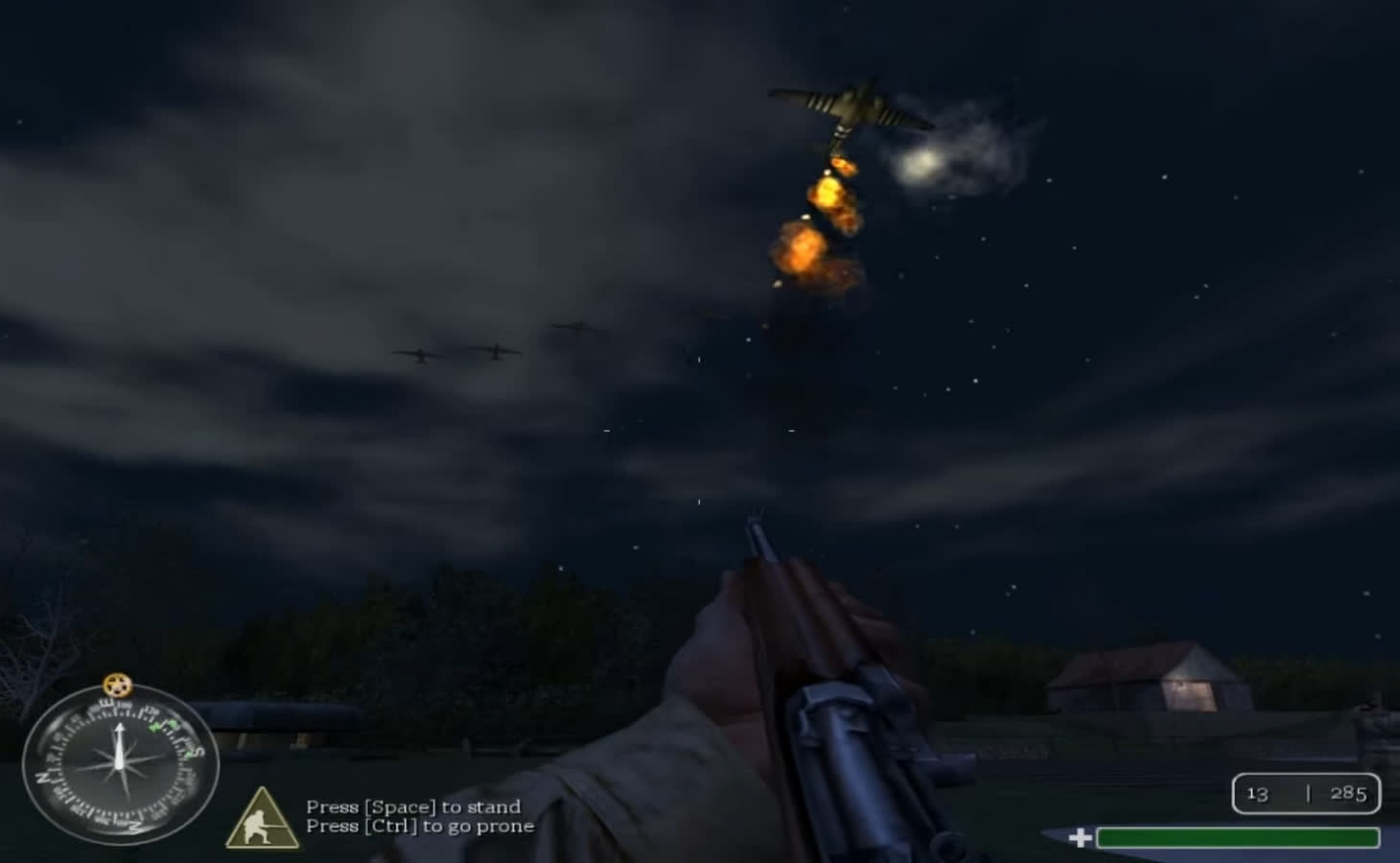
Call of Duty also introduced – rather subtly – the infamous, time-travelling protagonist Capt. John Price during a sneaky warship mission where he also meets his fate after being overwhelmed by the Axis forces. Capt. Price was, of course, resurrected in several future installments of the game and was last seen 'going dark' in 2019's Modern Warfare. The game's multiplayer mode, though in its infancy, had over a dozen maps with players facing off in Team Deathmatch, Headquarters, and several other modes.
Undeniably a hit in 2003, Call of Duty's development studio, Infinity Ward, was acquired by Activision the same year, as the publisher looked forward to establishing a solid competitor to military-themed shooters like Counter Strike, Battlefield and Medal of Honor, as well as others like Halo and Far Cry.
Call of Duty 2 (2005)

Besides the graphical and audio improvements, Call of Duty 2's launch alongside the Xbox 360 was a sign of things to come as the franchise eventually became more popular and focused towards consoles than PC. It also introduced regenerating health, which meant players no longer had to search for medical kits to refill their health and could simply crouch or prone behind a sandbag for some time before having another go at that deadly MG42 gunner.
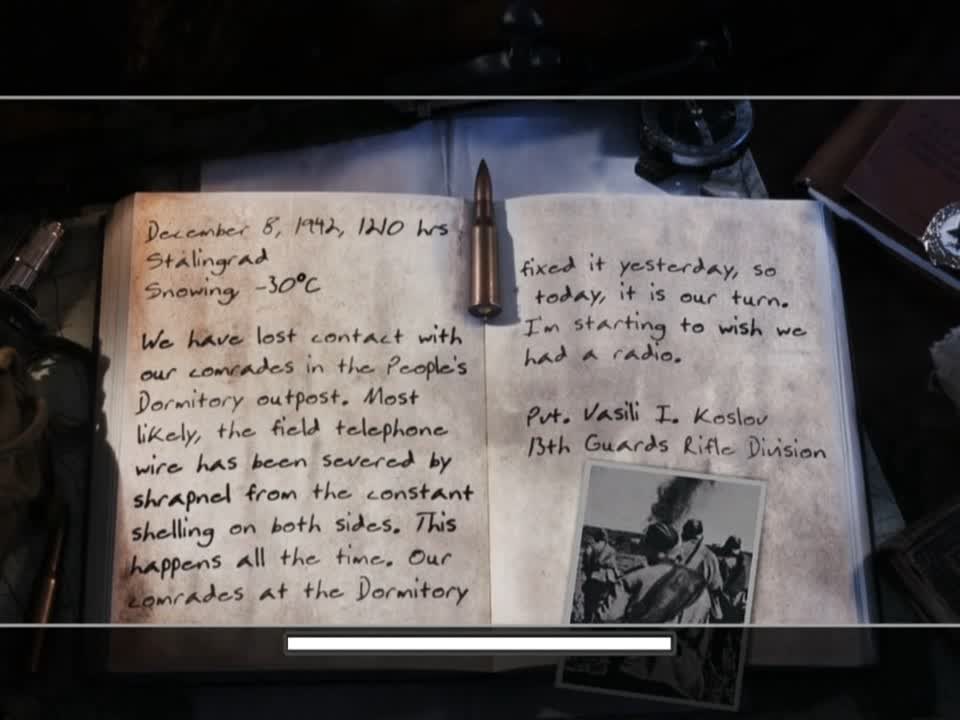
This time, the campaign began on the Soviet front where bitter cold and potatoes accompany the player through basic weapons training. From close-quarter combat in the war stricken streets of Stalingrad to fighting in the sandy trenches and tanks in Egypt's El-Alamein in North Africa, Call of Duty 2 also featured the historic D-Day invasion of Normandy and another reincarnation of Capt. Price.
The game's multiplayer offering was solid, too. Sniping from the rooftops in Tunisia's town of Toujane with a Mosin-Nagant or Lee-Enfield feels just as satisfying today as it did back in 2005. Also, without any killstreaks to assist players in battle, the focus was purely on putting your enemy in the crosshairs at the right time. What happened next entirely depended on who pulled the trigger first.
Call of Duty 3 (2006)

Much like the previous two games, the third-installment also focused around WW2 events, but this time the campaign told stories of the Canadian and Polish armies in addition to American, British and French forces. The game only arrived for consoles and brought with it a new class loadout system for multiplayer, a feature that PC players would only get to experience the following year with the game's fourth, and possibly the most significant installment.

With three consecutive titles and several expansions based on World War 2 events, it was high time for the franchise to try something bold and new, especially as its main rival from EA had ventured far into the future with Battlefield 2142.
As it turned out, Call of Duty found its perfect footing in the present.
Call of Duty: Modern Warfare (2007)

It was a remarkable year for story-driven and multiplayer first-person shooters. Call of Duty: Modern Warfare's fresh take on global conflict with a strong story, slick presentation and engaging gameplay held its own against other heavyweights released that year, including Medal of Honor: Airborne, CrossFire, Halo 3, BioShock, Team Fortress 2, Portal, and Crysis.
Running on the id Tech-based IW 3.0 engine, Modern Warfare featured a number of visual and gameplay improvements. In addition to the major redesign of the menus and HUD, players could now slice watermelons as well, and some surfaces like wood and sheet metal were penetrable by bullets.
The star of the show was the single-player campaign, which portrayed disturbance on a global scale, particularly Russia, the Middle East and in Capt. Price's mood upon discovering that his next SAS recruit was called Soap. Nonetheless, our shooting skills soon proved that we were good to go on a risky freighter mission in very bad weather.
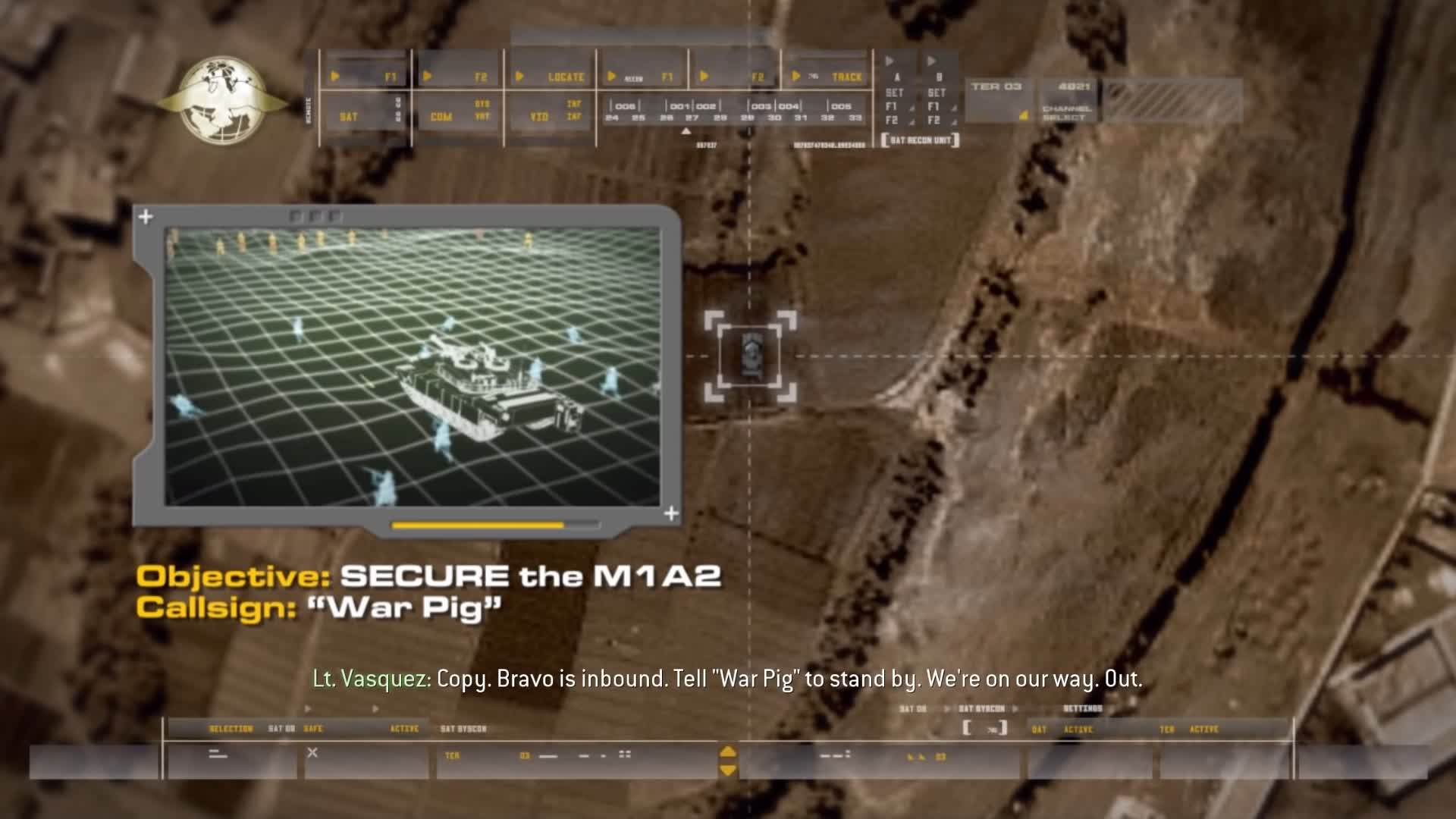
Aside from Soap MacTavish and John Price, Modern Warfare's campaign delivered memorable characters like Gaz, Nikolai and Griggs, who accompany the player across the game's atmospheric, linear set pieces where tanks need blowing up with Javelins and an AC-130 gunship gets called for air support. For many, that intensity peaked with Capt. McMillan in the infamous "All Ghillied Up" flashback mission, even if the campaign itself ended on quite the cliffhanger.
The game's multiplayer treaded its own path, improving upon the class-loadout feature introduced previously, while adding in a new Perks system. The cherry on top, however, were the maps that allowed players to fully take advantage of their arsenal and unique playstyle. Backlot, Crash, Crossfire and Overgrown provided a good mix of open/semi-open environments to mastering snipers, assault rifles and ahem, camping, while Killhouse and Shipment favored mid/short-range weapons.
With a solid foundation set in place, Modern Warfare was poised to deliver another blockbuster sequel, but not before Treyarch had another go at a WW2 setting with World at War in 2008, carving out its own 'Black Ops' series in the process.
Call of Duty: World at War (2008)
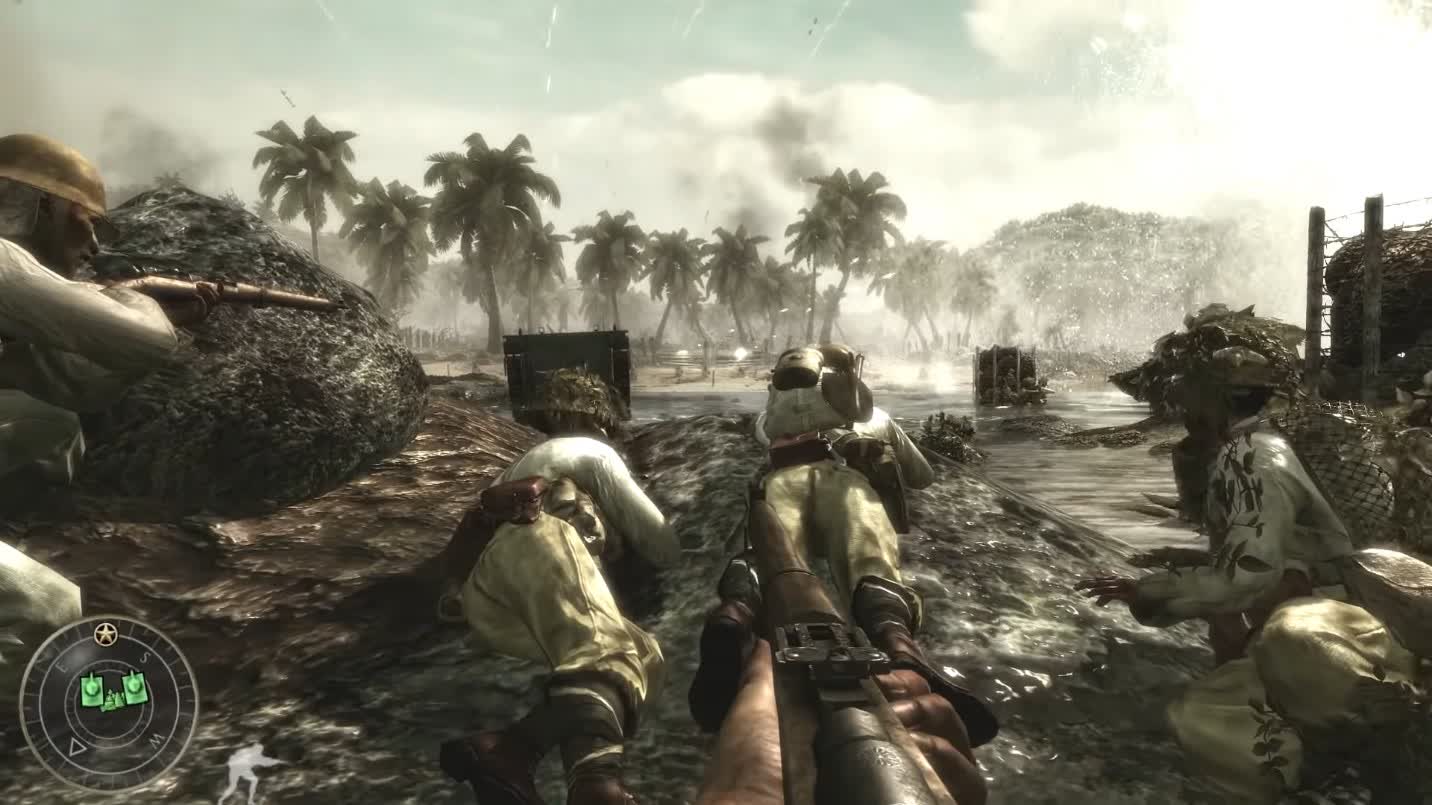
Narrative wasn't just Infinity Ward's forte as Treyarch proved with its boldest take yet on a WW2 setting, this time focusing on the Pacific and Eastern front.
The campaign began in ambush-infested jungles of the Pacific islands where US Marines face off against the Imperial Japanese Army. While a flamethrower eventually arrives to lighten things up, players initially need to take out camouflaged snipers sitting atop tall trees and Bayonet-wielding enemies charging in at full speed. Meanwhile on the eastern front, Red Army's Viktor Reznov proved to be yet another memorable character for the franchise who would go on to appear in (almost) every future Black Ops installment.

For World at War's multiplayer, Treyarch introduced a different progression system to 2007's Modern Warfare, while carrying over most of the traditional game modes. Its most notable contribution, however, was the addition of 4-player Nazi Zombies mode that became an instant hit and earned itself a devoted fan base.
In an added twist, Treyarch also introduced a co-op mode for the first time in any Call of Duty, including the single-player campaign that now let players experience those action-packed missions alongside a friend. For many players, World at War stands out as the best game in the entire series, while others remain forever convinced by what arrived the following year.
Call of Duty: Modern Warfare 2 (2009)

High expectations were in place for Modern Warfare 2, the first CoD game to directly carry on story elements from a previous title. As the plot thickened with the introduction of Gen. Shepherd, Makarov, and several other characters, players were treated to a variety of missions across new locations, including the controversial 'No Russian.'
As Gary Roach Sanderson, players get to fight alongside Soap MacTavish in snowy mountains of Kazakhstan and Brazil's Rio de Janeiro, among other places. A parallel US-Russian conflict, meanwhile, sees a war struck Washington and the destruction of the International Space Station.
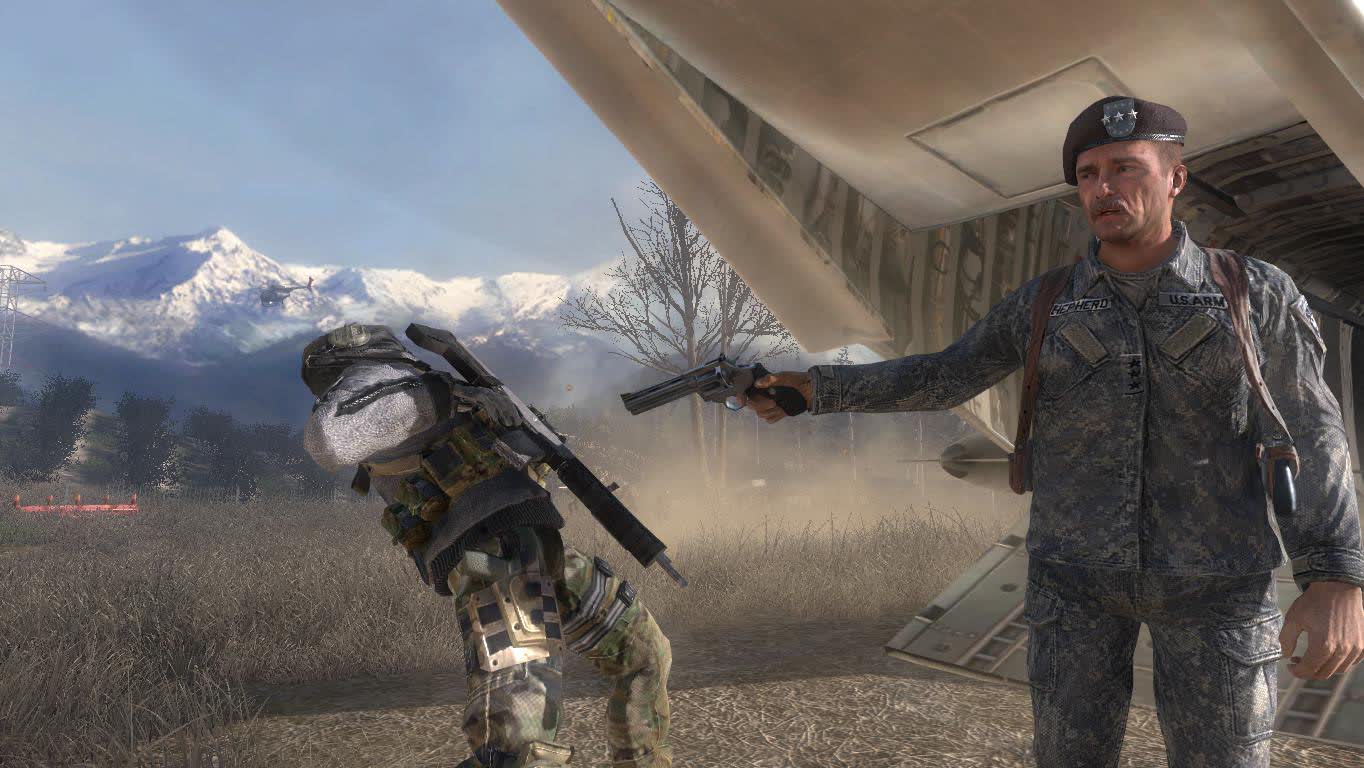
Following Capt. Price's rescue from the Gulag, the story then evolved to balance the return of a fan-favorite with the loss of two beloved characters, Roach and Ghost. Like its prequel, Modern Warfare 2 had a tense ending with Gen. Shepherd meeting his fate, but the story was far from over.
The game's multiplayer mode was just as well-received as the campaign, if not more. The ranking system and perks were revised, killstreaks were expanded, and players could now equip a heartbeat sensor for added immersion in fun new maps like Rush, Favela, Highrise and Terminal. A new Spec Ops mode was also added, where players could attempt fast-paced missions on their own or with a friend.
A trilogy was pretty much guaranteed at this point, but unfortunately relations between Activision and Infinity Ward's Vince Zampella and Jason West had started to strain. The co-founding duo of Call of Duty was dismissed merely a few months after MW2's release, and went on to form Respawn Entertainment (Titanfall, Apex Legends) under Electronic Arts. Fans ultimately got a third sequel that ended MW's plot decently, however, we'd never know how things would've turned out had Zampella and West been in charge of the studio's creative reigns.
Call of Duty: Black Ops (2010)

Given its annual release schedule, Call of Duty was now onto its seventh installment in 2010. As it turned out, Black Ops also had an issue with numbers in the campaign. While Infinity Ward had pretty much perfected the modern-day shooter, Treyarch based its story on events from the Cold War.
Most of the game's single-player missions were flashbacks of former US Marine Alex Mason, member of a covert assassination team. With CIA's Jason Hudson as Mason's handler, players fight alongside Frank Woods and Joseph Bowman in Mason's past where they also get to see Viktor Reznov making a return.
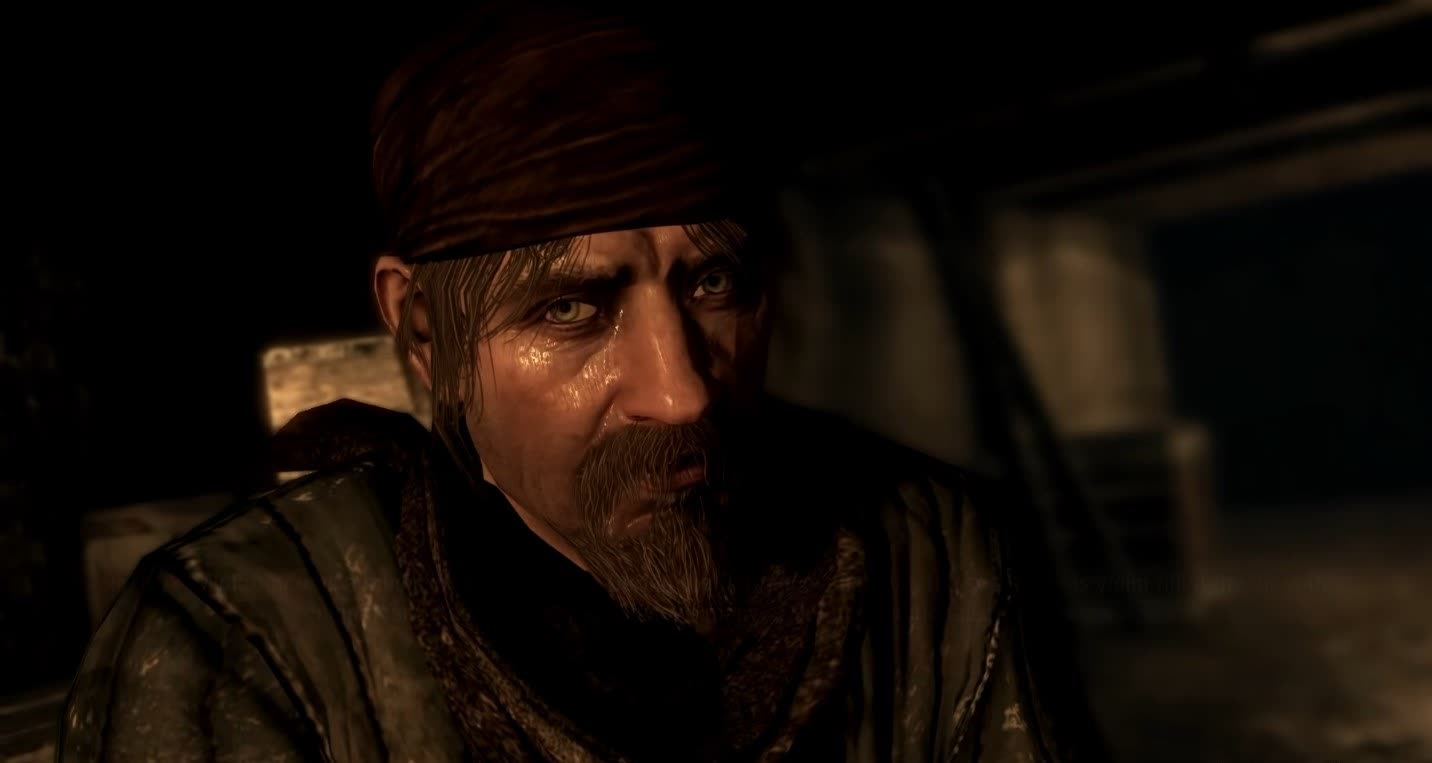
After discovering that the numbers were a broadcast to sleeper cells for unleashing a biochemical weapon all over the US, Hudson and Mason hunt down and destroy the broadcast's source located in a ship in Cuba.
With Black Ops, Call of Duty's multiplayer introduced CODPoints as a currency to unlock weapons and perks as players levelled up and progressed through the usual game modes and improved Zombies mode. Meanwhile, a special Combat Training section was added to help newcomers get acquainted with basics. Fan favorites maps like Nuketown, WMD and Firing Range, among others, could now be freely spectated as well.
Although Black Ops didn't exactly leave any loose ends in terms of its story, a sequel did arrive that pushed the franchise into futuristic warfare for the first time.
Call of Duty: Modern Warfare 3 (2011)

Like the strong bond that developed between Soap and Price over the years, Call of Duty had also formed a similar relationship with its fans eagerly awaiting Modern Warfare 3. The highly-anticipated final installment didn't attempt anything extraordinary, but its scripted, action-packed sequences got even bigger in scale, and there were enough twists in the plot – notably Soap's demise – to bring the MW trilogy to a predictable, but satisfying end.
The campaign immediately tasks players to removing jammers from the New York Stock Exchange, skipping over the need for another weapons training mission. The global conflict continues in the streets of Europe, Africa and the Middle East alongside a brief flashback to the "All Ghillied Up" mission in Pripyat, Ukraine.
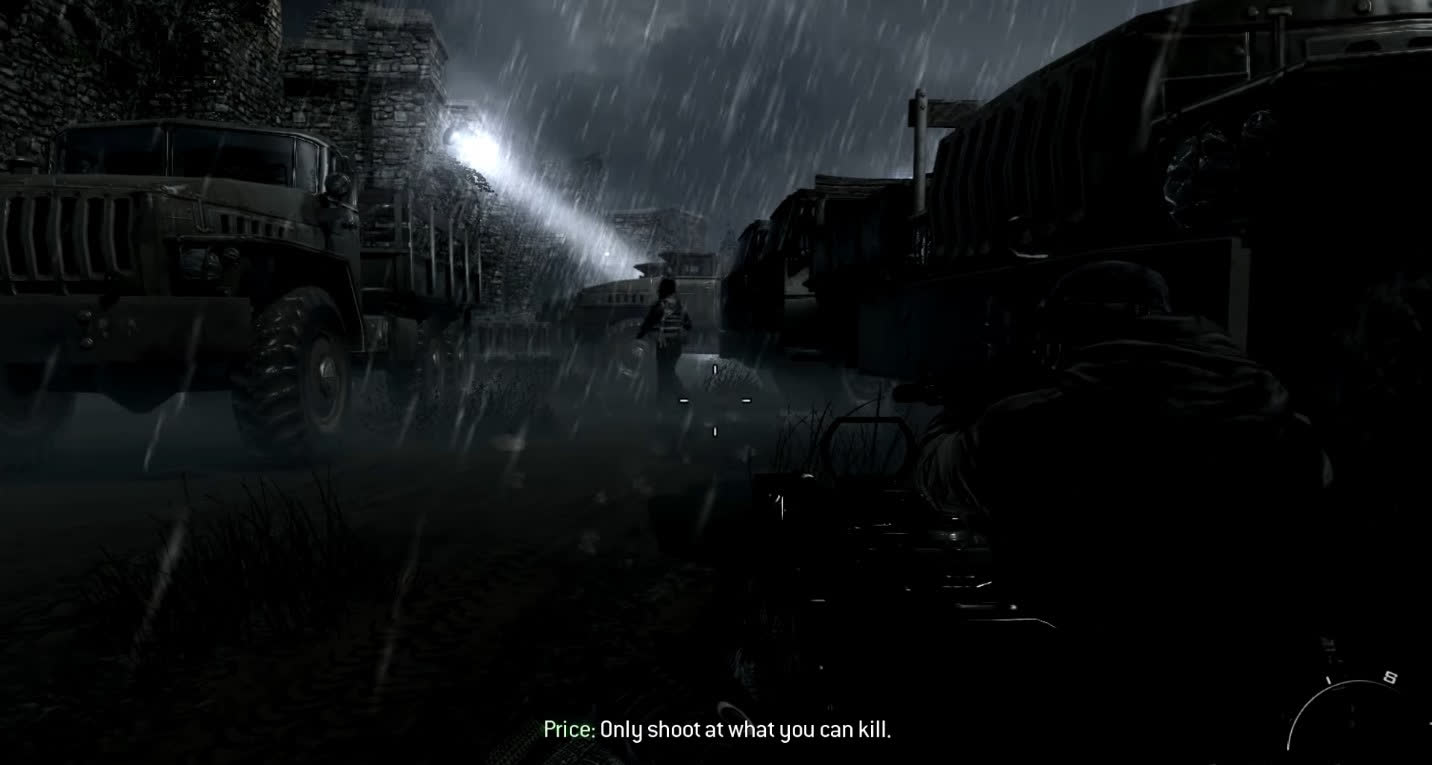
It was also the time when Call of Duty's reliance on Hollywood-style action pieces had started to get a bit long in the tooth. Though it broke sales records for Activision and sold in the millions, the series needed a new direction outside of a modern setting.
MW3's multiplayer improved upon features found in the prequels and borrowed a few from Treyarch's Black Ops. Alongside Kill Confirmed and Team Defender as two new game modes, CoD's MP community was kept busy with a dozen new maps including hits like Hardhat, Dome and Mission.
Activision employed half a dozen studios to develop Modern Warfare 3 after the shakeup at Infinity Ward. It was also the year when it doubled down on the Call of Duty franchise and set three studios (Infinity Ward, Treyarch, and Sledgehammer Games) in rotation for annual releases of the game. Ka-ching!
